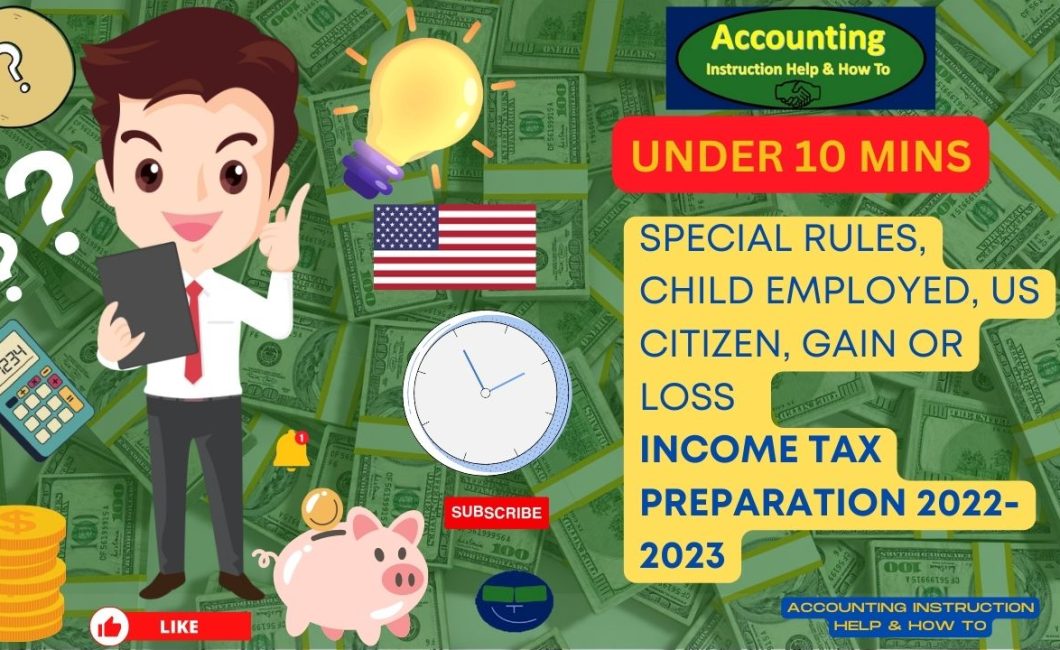If you are working for a parent who is a sole proprietor or a partnership where both partners are parents, then you may still be subject to S E tax. This is because the parent-child relationship does not change the fact that the work is still considered self-employment.
It’s important to note that while tax software can certainly help with calculating and filing taxes, it’s still important to have a basic understanding of the tax system and the various rules and regulations that apply. This can help ensure that you are accurately reporting your income and deductions and avoiding any potential penalties or fines.
Additionally, for non-citizens and residents of certain US territories, navigating the tax system can be particularly complex. Seeking the advice of a qualified tax professional may be helpful in these situations to ensure that you are meeting your tax obligations and taking advantage of any available exemptions or credits.
As a foreign government or international organization employee, your earnings may be exempt from U.S. Social Security and Medicare taxes under certain circumstances. To qualify for the exemption, you must be a nonresident alien, and you must be in the U.S. on behalf of a foreign government or an international organization. Your earnings must also be subject to the provisions of a tax treaty between the U.S. and your home country.
If you meet these conditions, your earnings may be exempt from U.S. Social Security and Medicare taxes. However, you may still be subject to taxes in your home country or in the country where you are performing services.
If you are unsure about your tax obligations as a foreign government or international organization employee, you should consult with a tax professional or contact the IRS for guidance.
Self-employment taxes can be complex and overwhelming, but it’s important to understand the rules and regulations that apply to your specific situation. As we discussed, self-employment tax is generally required if you have net earnings of $400 or more from self-employment, but there are exceptions and special situations that may apply.
If you are working for a church or qualified church-controlled organization, you may be exempt from Social Security and Medicare taxes if you are not a minister, member of a religious order, or Christian Science practitioner, and if your earnings are below a certain threshold. Similarly, if you are a member of a fishing crew or a notary public, there are specific rules that apply to determine if you are subject to self-employment tax.
For US citizens or resident aliens residing abroad, the rules can be even more complicated, especially if there are social security agreements between the US and the country in which you are living. It’s important to research your specific situation and understand the tax laws and regulations that apply to you.
If you have multiple businesses or professions that generate self-employment income, you must combine the net profit or loss from each to determine your total earnings subject to self-employment tax. A loss from one business can reduce the profit from another, so it’s important to keep accurate records and track your earnings and expenses for each business.
Understanding self-employment tax rules and regulations can be challenging, but it’s essential for anyone who is self-employed or earning income from self-employment. Be sure to consult with a tax professional or use reputable online resources to stay up to date on the latest tax laws and regulations that apply to your situation.
Self-employment tax is a tax paid by individuals who work for themselves and are not considered employees of a company. It is a combination of Social Security and Medicare taxes, and it is calculated based on net earnings from self-employment. In general, if you are self-employed and your net earnings are $400 or more in a year, you must pay self-employment tax.
However, there are some exceptions and special rules that apply to certain types of income. One of these is community property income.
Community property income is income that is considered community property under state law. Community property is a legal concept that applies in some states, where property acquired during a marriage is considered jointly owned by both spouses. This includes income earned by either spouse during the marriage.
If any income from a trade or business other than a partnership is community property income under state law, it is included in the earnings subject to self-employment tax of the spouse carrying on the trade or business. This means that if you are married and live in a community property state, you may need to include your spouse’s income in your self-employment tax calculation.
It’s important to note that gain or loss from the disposition of property that is neither stock in trade nor held primarily for sale to customers does not include earnings subject to self-employment tax. This means that if you sell property that is not part of your trade or business, such as a personal asset like a car or a house, any gain or loss from the sale is not subject to self-employment tax.
In general, it’s important to understand the different types of income and how they are treated for tax purposes. Self-employment tax can be complicated, and there are many rules and exceptions that apply. If you have questions about your specific situation, it’s a good idea to consult with a tax professional who can help you navigate the complexities of the tax code.

